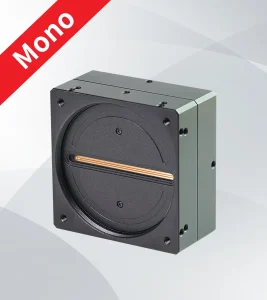Machine vision for use in industry is a technology designed to enhance the manufacturing process by improving efficiency and increasing accuracy. One of the most significant advantages is its high-speed, real-time inspection capabilities. The systems are able to inspect parts at up to 100 per second — far beyond what can be achieved through manual inspection. That pace results in not just a higher production throughput, but also reduces bottlenecks on assembly lines.
The quality of control is the same with a machine vision. This technology can find almost invisible defects to an accuracy of the order of several microns, guaranteeing that only products meeting specified standards are supplied to consumers. In the electronic industry, one of the biggest smartphone manufacturers reduced their defect rate by 35% after implementing with Industrial Machine Vision Systems for component inspections. Finding defects earlier in the production process prevents expensive rework or, worse yet — product recalls.
Machine learning integrated into vision systems better recognizes the pattern and anomalous. They are capable of adjusting to various product variations without requiring manual reprogramming, further enhancing operational flexibility. One of the biggest machine vision highlights for 2021 comes from a major auto manufacturer which deployed an AI based Vision System helping to identify assembly line defects by up to 40%.
As Elon Musk is continuously stating automation and AI will drive a revolution in manufacturing, machine vision for industrial units makes under the same paradigm. His perspective highlights the increasing need for these systems in industries pushing toward greater levels of precision and speed.
Furthermore, machine vision systems also save in costs. The outlay of cash to hire people is drastically reduced by allowing companies to require fewer manual inspections which will save them money however also cause less errors. According to a study published by Boston Consulting Group, companies that implement machine vision in their manufacturing suite of operations reduce operational costs 25% after year one.

Machine as well allows us to trace contaminated food source, so industrial machine vision is also beneficial for the same. It can trace components through the production process leading to any defective products being stopped in their tracks prior reaching the consumer. Compliance: This is critical for highly regulated industries such as pharmaceuticals and aerospace, where safety of the product plays a huge role in compliance — Given that data from testing on artificial test systems correlates to new genomics tests (as well as existing unifying therapy recommendations), this function ensures its validity.
Industrial machine vision is capable of automating inspections and providing greater accuracy, which in turn drastically improve modern manufacturing processes. For those businesses wanting to take on this technology, check out the provided solutions at industrial machine vision.